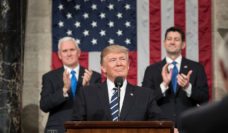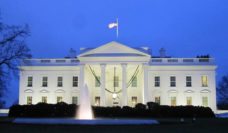Yesterday I reflected on some of the questions I asked one year ago as I tried to wrap my head around what Donald Trump’s election meant for health reform. The threat to the individual mandate is the biggest news this week, but there are a lot of other important issues at stake this coming year. Today I look at five more of the questions I asked last year which reveal just how much uncertainty remains the future of health reform.
What happens to the current and future negotiations over Medicaid 1115 waivers? CMS administrator Seema Verma has made it clear to states that they can include work requirements in future waiver applications. This would be a big change for Medicaid and opens the door for states to try things that never would have been approved by the Obama administration.
Will any state try a 1332 waiver? How will the Trump administration respond? This is one of the most confusing dynamics in health reform these days. Nine states applied for a 1332 state innovation waiver. Despite sending signals that the Trump administration would allow considerable state flexibility and not strictly enforce the ACA’s requirements, the Trump administration blocked the application from conservatives in Iowa. Donald Trump himself was said to have intervened because he felt it would be seen as propping up Obamacare. I wonder if the grand bargain Republicans have made by tolerating Trump will be worth it if he continues to undermine their policy goals like he did in Iowa.
Will the Trump administration continue the movement away from fee for service or shift course? Tom Price was a known skeptic of Obama-era policies shifting Medicare payment from volume to value. His departure from HHS made this question all the more interesting. In some ways it is still too early to tell, but this seems like an example of the Trump approach of rejecting whatever Obama did. As the leader of one physician organization put it recently, “Clearly a great big foot has been put on the break.”
What happens when the Children’s Health Insurance Program Expires in September? I’m struck by the cynical phrasing of my question last year that doesn’t ask whether CHIP – the program that covers nearly 9 million kids – will be renewed but what happens when it expires. Supposedly a deal was coming together before Graham-Cassidy sucked the oxygen out of the room. More than half the states will see their CHIP funds try up by March, according to analysis by the Kaiser Family Foundation. CHIP has a history of bi-partisan support, with Republicans supporting its creation in 1997 and its extension in 2015. But sometimes lost in this narrative is a sometimes turbulent history – most notably that President George W. Bush vetoed the reauthorization in 2007 for fear that it would be a slippery slope to more comprehensive health reform (which it sort of was).
Will public health emerge as a health reform issue that can transcend the partisan divide? I have written elsewhere that there is no reason public health should be seen as a partisan issue. Everyone should embrace the goals of high quality health. Re-framing the conversation in these terms may break down some of the partisan divisions and facilitate a different kind of conversation. But that hasn’t really happened, with the exception perhaps of bi-partisan consensus that opioids are a crisis requiring attention. But when money is needed for something else, the Prevention and Public Health is an easy target.
Feature image: Alistair Hamilton, ?, used under CC BY 2.0














